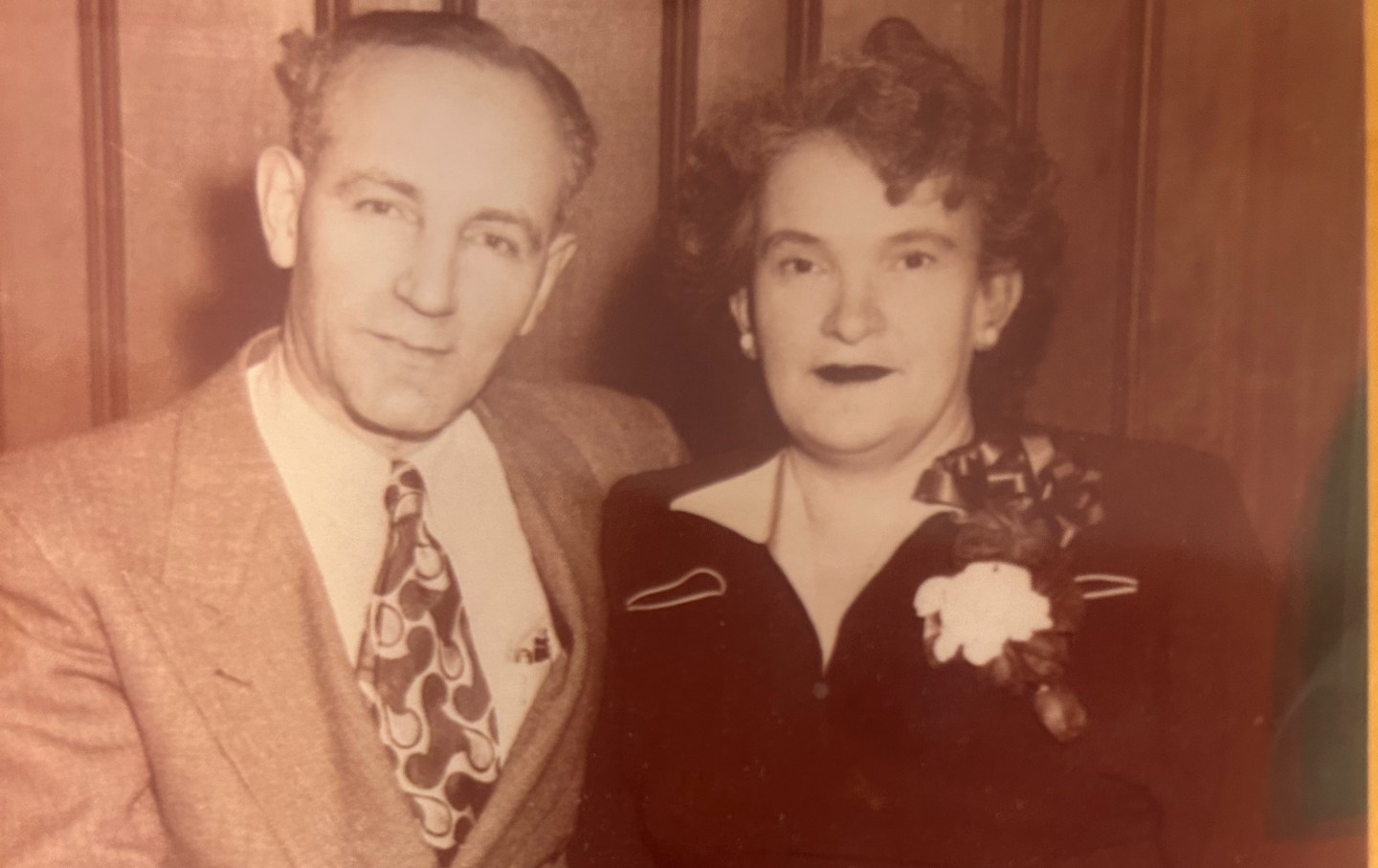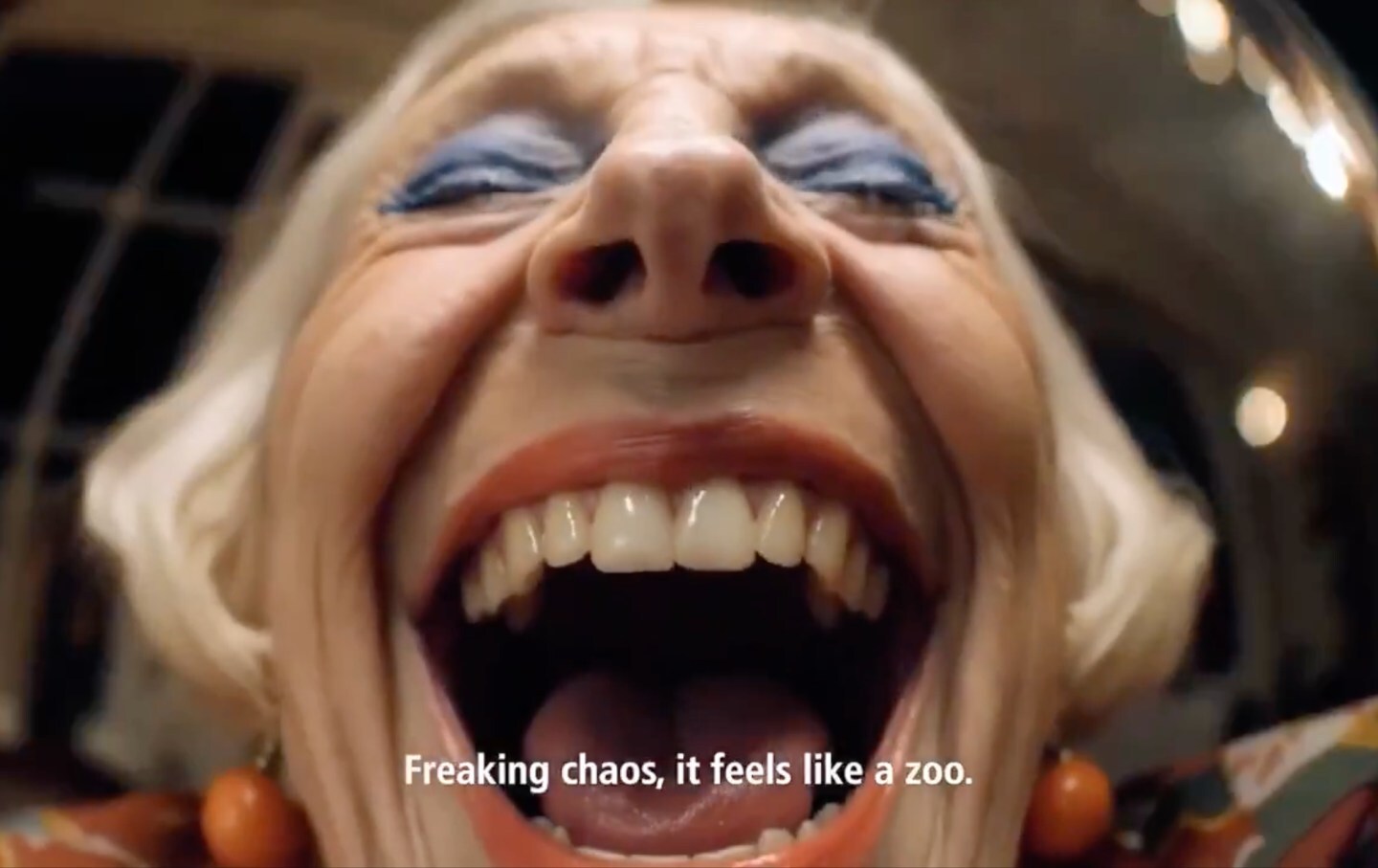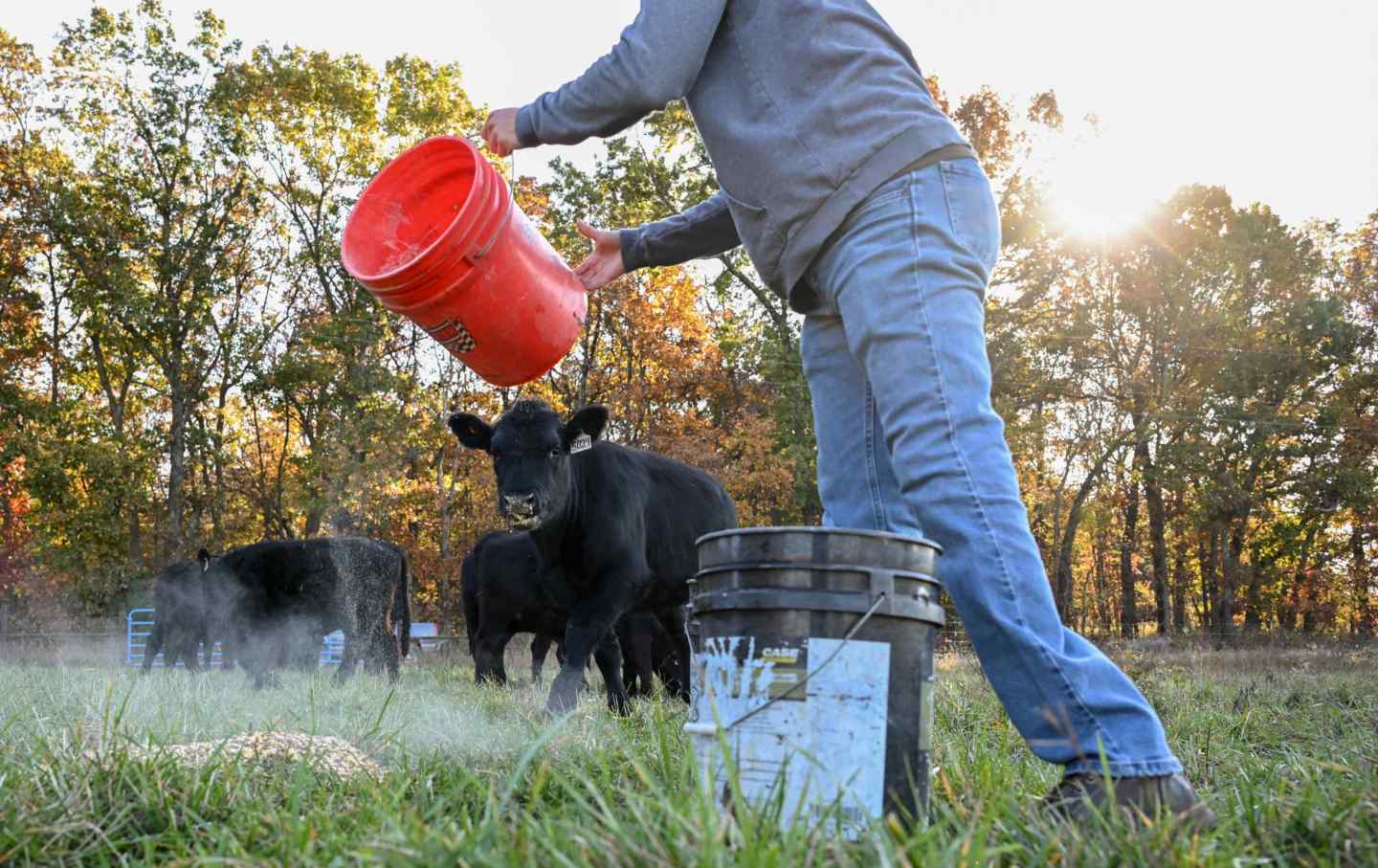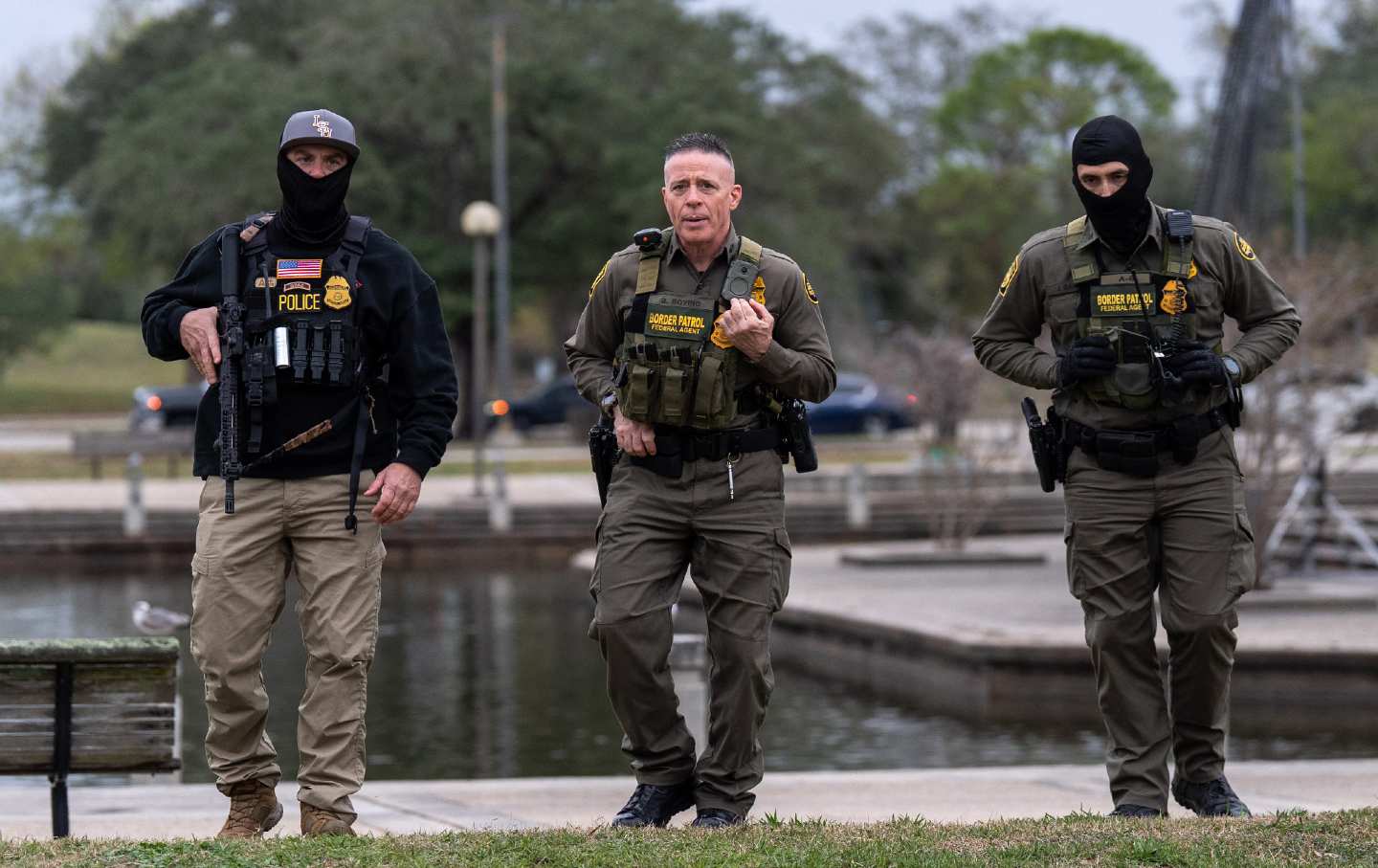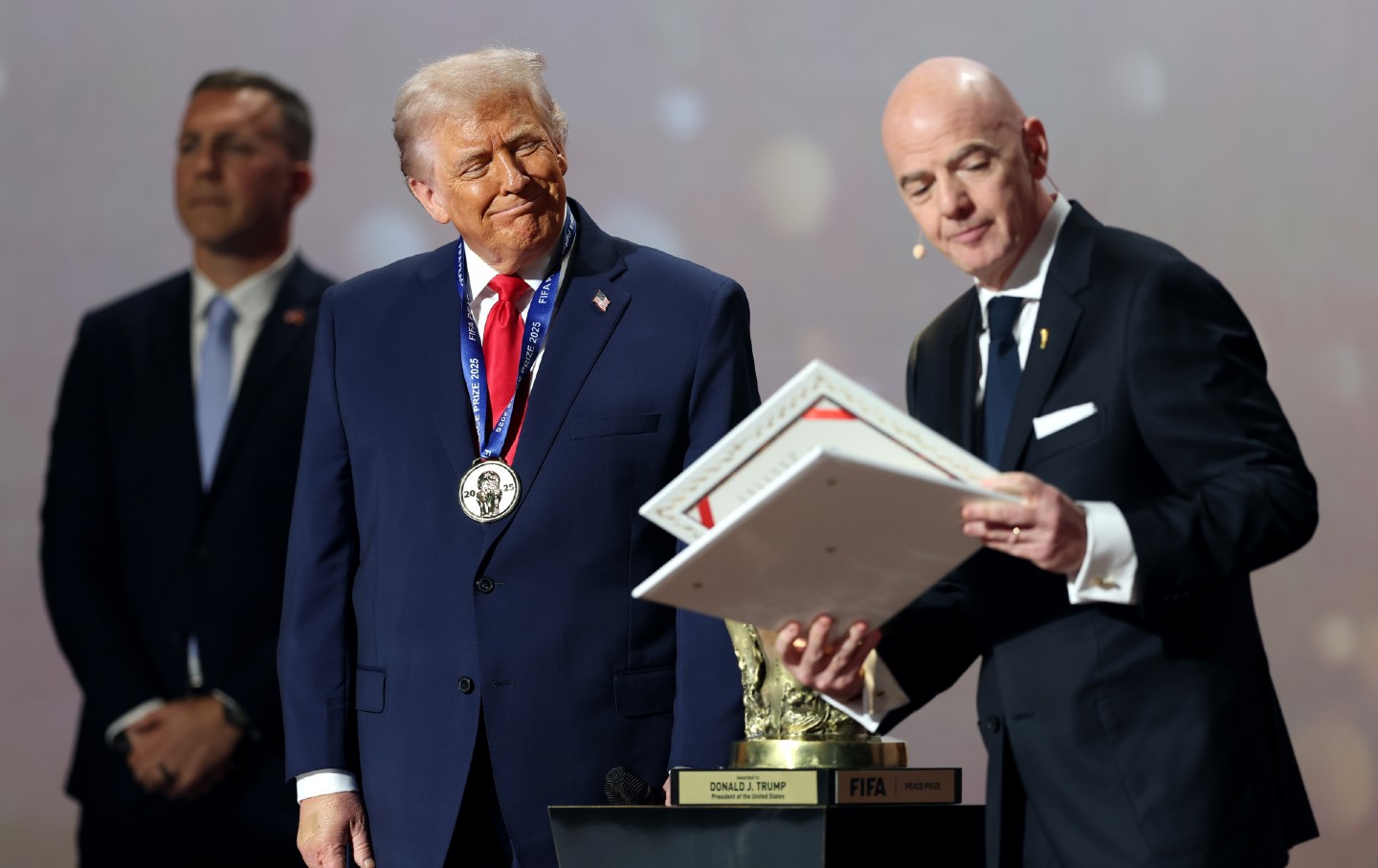The Pope Wants Us to Talk About Sexuality and Climate Change
In his new text and recently convened synod, he’s encouraging dialogue. It’s going to take a lot of work.
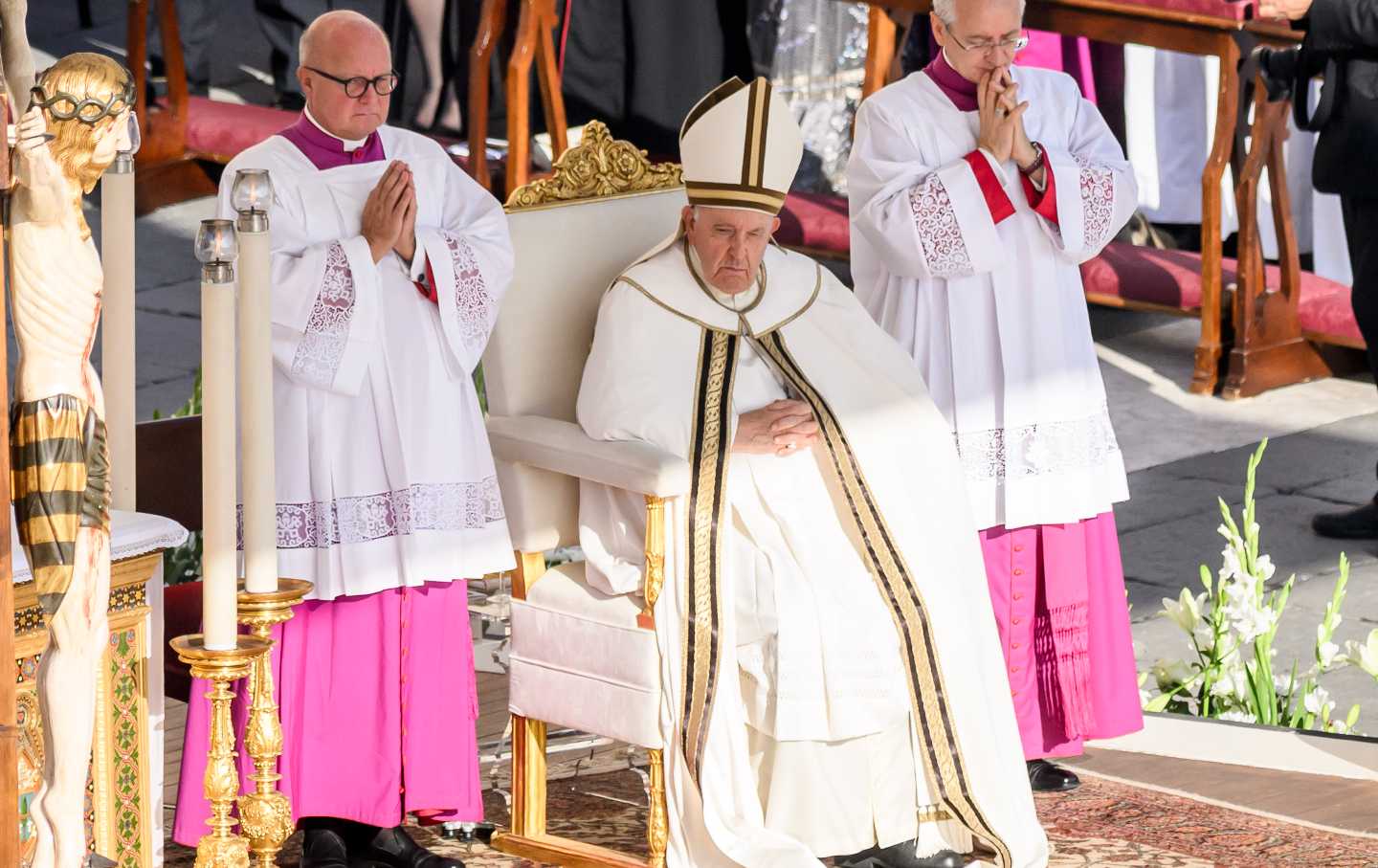
Wednesday, October 4, was a busy day in Rome. It started with Pope Francis releasing Laudate Deum, a sort of update to his groundbreaking encyclical Laudato Si’. Released more than eight years ago, Laudato Si’ was the first such document to focus on the environment, specifically on the disasters threatened by global warming, consumerism, and overdevelopment. The release date was deliberate: October 4 is the feast day of Saint Francis of Assisi, whose name this pope took upon his election and whose resonance he clearly intends to invoke. (“Laudato Si’” are the opening words of Saint Francis’s “Canticle of the Sun,” also called the “Canticle of the Creatures.”) The medieval mystic and itinerant friar is well-known even among non-Catholics for engaging the natural world—reputedly preaching to birds and taming a wolf—as well as for his attempts at rapprochement with non-Christians.
It’s no coincidence that the pope also chose the Feast of Saint Francis as the day to open the 16th General Assembly of the Synod of Bishops, a major step in what he hopes will be the most important church reform of his pontificate. For the uninitiated: Synods are essentially meetings of church leaders, but this assembly will be the latest in a so-called ongoing “synod on synodality,” that is, deliberation on the synods’ model of decision-making. It’s the culmination of a three-year process of collective discernment that has involved millions of lay Catholics from across the globe. His ambitions for the synod parallel his hopes for Laudate Deum: Both aim to rethink the existing structures of dialogue in the church—and in the world at large—in pursuit of an ambitious goal: the inclusion of the voice of every stakeholder.
Within the church, that meant making the bold move of expanding the voting membership of the synod beyond the bishops and their clerical assistants to include the laity and, more dramatically, women. Francis wants to see something similar happen in the world at large. While his warning of environmental catastrophe is what lingers in most people’s minds, the truly revolutionary proposal of Laudato Si’ was its call to a universal dialogue. In that encyclical, Francis sought “a conversation which includes everyone, since the environmental challenge we are undergoing, and its human roots, concern and affect us all.”
Dialogue is not what most people, Catholic or non-Catholic, expect as the endgame of a papal pronouncement. They might assume the old saying “Roma locuta, causa finita est” (“Rome has spoken, the case is closed”) is closer to the mark, that papal edicts are to be heard, applauded, and obeyed. Of course, the existence of such a saying indicates that encyclicals have often inspired a lot of grumbling and quiet defiance. But historically the church has offered few structures for making that dissent felt. Deference, of course, will only diminish if non-Catholics make up the bulk of your audience. But deference is not what Francis says he wants, nor is he simply looking for an expanded audience. A dialogue, after all, whether inside or outside the church, needs active participants—not submissive auditors.
Talk of a universal “conversation” sounds a bit utopian and might remind people of that other utopianist, Elon Musk, and the social platform he’s seeking to reshape. Reviews of that enterprise have been less than enthusiastic. Are Francis’s projects faring any better?
Much of the reporting on the synod has speculated on what conclusions it will reach regarding specific issues, particularly the ordination of women as deacons or priests, and the place LGBTQ+ people in the church. Less noted is the synodal process itself, which has been costly not only in terms of money, but in time, effort, and patience. A report prepared by the United States Conference of Catholic Bishops (USCCB) attempted to synthesize the results of over 22,000 meetings held in parish halls and community centers in the fall of 2021. Those conversations involved more than 700,000 Catholics. The USCCB then worked with its colleagues in Canada, who had undertaken a similar process, to prepare a report from the North American continent. Analogous procedures were being carried out in every other corner of the Catholic world. These reports in turn informed the instrumentum laboris, a sort of draft agenda of the synod, which will complete its first session at the end of this month and reconvene again in October 2024.
The fact that the acronym “LGBTQ+” appears a total of seven times in the USCCB and North American documents and twice in the instrumentum, instead of the terms preferred by some members of the clergy and faithful (“homosexual,” “same-sex attracted,” “those suffering from gender dysphoria,” etc.), would have been enough to ruffle some feathers. That they spoke of welcoming LGBTQ+ people and nowhere described their acts as sin was alarming enough to inspire one of the dubia (formal questions requiring the pope’s clarification) signed by five cardinals and posed to Francis this summer. The Vatican published that dubium (among others, including one on the ordination of women) along with Francis’s answers, just days before the beginning of the synod.
The real crux of the cardinals’ concerns might best be expressed in their dubium on the role of synodality in the church’s governance. The wording of the question might be unclear to readers not steeped in Catholic ecclesiology and the documents of the Second Vatican Council, but the gist of it is this: Does the synod risk reducing the teaching authority of the pope and the bishops? That question betrays the same kind of anxiety provoked by the erosion of confidence in expertise that many of us face, as self-appointed “authorities” blossom on the Internet and in the fractured media landscape. But the synodal process, as complex and cumbersome as it might seem, is nothing like the Wild West of the Internet. And if it succeeds, it might very well raise an existential question for many members of the episcopal college: What exactly is the expertise of a bishop?
When it comes to the global dialogue on climate that Francis envisions, the picture looks bleaker. Laudato Si’warned that combatting global warming would require more than technocratic fixes and expressed hope that an all-encompassing conversation might lead to a sort of “conversion”—not to Catholicism, but to a deeper respect for the tight communion of human beings and their natural environment. But while the encyclical was met with excitement by many non-Catholics and inspired a flurry of activity, it cannot be said that it has penetrated deeply into the culture. Its failure might simply be one of medium—while it can be downloaded free from the Internet, its 180 pages require a degree of sustained attention far exceeding the demands of the average YouTube video, to say nothing of a typical TikTok reel.
Laudate Deum, in contrast, is less than 20 pages long. As I read it, I had the sense of listening to an exhausted and discouraged speaker delivering a filibuster in an empty room. That impression was confirmed by commentators like Ricardo da Silva at America, who notes how much darker and less hopeful the text’s tone is compared to that of Laudato Si’. The reasons for Francis’s discouragement are obvious. Few nations have lived up to the commitments they made in the Paris Agreement; consumption of petroleum continues to rise; and 2022 was among the 10 hottest years in the historical record (all of which have happened since 2010).
But the greatest source of Francis’s frustration in Laudate Deum seems to be the stubborn resistance of so many to the message. He states bluntly that powerful economic interests stand in the way of any meaningful response to the problem of climate change. He defends the inhabitants of poorer nations, who are the first to feel the effects of the crisis and whose rising numbers are singled out for blame, when it’s clear that the inhabitants of wealthier nations produce far more emissions per capita of greenhouse gases. But the clearest expression of his weariness is the flat statement that there can no longer be reasonable doubt that the bulk of the warming is due to human activity: “ The change in average surface temperatures cannot be explained except as the result of the increase of greenhouse gases.”
Laudato Si’ invoked the charisma of Francis’s namesake and carefully laid out a “genealogy” of previous papal statements on the environment, as if to emphasize that Francis was developing an existing tradition. But that very tradition might bewilder some of the non-Catholic readers he was inviting to the dialogue. In contrast, the bulk of Laudate Deum is dedicated to the scientific evidence for anthropogenic warming of the atmosphere and ocean. While this is intended as neutral language accessible to everyone, it nevertheless has provoked some of Francis’s Catholic antagonists. Francis X. Maiers, for example, in First Things, complains that the bulk of the exhortation “could have been drafted by any intelligent non-believer working for a secular NGO,” a snipe that reverberated through the Catholic Twitterverse. This is unfair, given that Laudate Deum is intended to be read alongside Laudato Si’, though the papal tradition Francis invokes in the latter is rooted in Pope Leo XIII’s 1891 pro-union encyclical Rerum Novarum (“Rights and Duties of Capital and Labor”), which alienates some of Francis’s US Catholic critics, whose economic notions lean laissez-faire.
But the conversation presented in the Catholic press and on social media platforms doesn’t provide a clear picture of the thought of most Catholics on the environment. Just a week before the start of the synod, Pew Research published an article on what US Catholics think about climate change. Their survey revealed, remarkably, that Catholics more closely mirror trends in US opinions than other religious groups. Among all US adults, 46 percent believe that the earth is getting warmer mostly because of human activity, while 26 percent attribute it to natural patterns, and 14 percent deny that there is any good evidence for global warming. For Catholics, those numbers are 44 percent, 29 percent, and 13 percent, respectively. Among Catholics, 57 percent believe that global climate change is a serious problem—as does the same percentage of US adults in general.
I asked a close friend and fellow scholar of religion if he thought this meant that the church had no significant role in forming Catholic consciences on the issue. He responded, “Or maybe Catholics are our true center.” It doesn’t surprise that the answer is ambiguous, capable of being read both ways. What special role Catholics play in the climate conversation, if any, now or in the future, might depend on what happens at the synod in Rome. Another friend of mine, who is a lapsed Catholic, said the synod is Francis’s way of walking the talk and modeling how people should talk about climate change. How many people will be willing to walk and talk with him remains to be seen.
Disobey authoritarians, support The Nation
Over the past year you’ve read Nation writers like Elie Mystal, Kaveh Akbar, John Nichols, Joan Walsh, Bryce Covert, Dave Zirin, Jeet Heer, Michael T. Klare, Katha Pollitt, Amy Littlefield, Gregg Gonsalves, and Sasha Abramsky take on the Trump family’s corruption, set the record straight about Robert F. Kennedy Jr.’s catastrophic Make America Healthy Again movement, survey the fallout and human cost of the DOGE wrecking ball, anticipate the Supreme Court’s dangerous antidemocratic rulings, and amplify successful tactics of resistance on the streets and in Congress.
We publish these stories because when members of our communities are being abducted, household debt is climbing, and AI data centers are causing water and electricity shortages, we have a duty as journalists to do all we can to inform the public.
In 2026, our aim is to do more than ever before—but we need your support to make that happen.
Through December 31, a generous donor will match all donations up to $75,000. That means that your contribution will be doubled, dollar for dollar. If we hit the full match, we’ll be starting 2026 with $150,000 to invest in the stories that impact real people’s lives—the kinds of stories that billionaire-owned, corporate-backed outlets aren’t covering.
With your support, our team will publish major stories that the president and his allies won’t want you to read. We’ll cover the emerging military-tech industrial complex and matters of war, peace, and surveillance, as well as the affordability crisis, hunger, housing, healthcare, the environment, attacks on reproductive rights, and much more. At the same time, we’ll imagine alternatives to Trumpian rule and uplift efforts to create a better world, here and now.
While your gift has twice the impact, I’m asking you to support The Nation with a donation today. You’ll empower the journalists, editors, and fact-checkers best equipped to hold this authoritarian administration to account.
I hope you won’t miss this moment—donate to The Nation today.
Onward,
Katrina vanden Heuvel
Editor and publisher, The Nation

